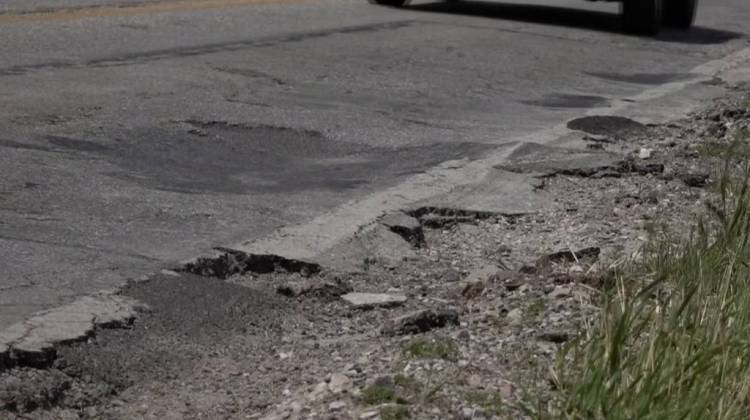Flooding devastated homes and farms in Indiana last year. The ongoing effects of the pandemic could strain Indiana’s ability to respond to disasters like floods, tornadoes or extreme heat.
Nicolette Louissaint is the executive director of Healthcare Ready — a national nonprofit that coordinates healthcare supply chains. She said just like the 2017 hurricane season, every federal disaster agency is responding to the current crisis.
But with COVID-19, so are local and state agencies — and they often don’t have as many resources.
“They’re going into budgets that should be prepared for natural disasters already. So they are already stretched in ways both financially and from a personnel perspective,” Louissaint said.
Louissaint said there may also be fewer emergency contractors and volunteers available for fear of catching COVID-19. That could be an issue in places that don’t have good internet access.
Duchess Adjei is the Indiana regional communication director for the American Red Cross. She said her organization has been preparing for a coronavirus outbreak long before it was declared a pandemic — and it’s adjusted its plans should another disaster come along.
“Talking about this for quite some time figuring out, ‘What can our organization do to make sure that we lean into this?’ Because this is something that is very unprecedented,” Adjei said.
Adjei said instead of sheltering together, disaster survivors might have to be housed in places where social distancing is easier — like hotel rooms or campsites. Food supplies may have to be dropped off at people’s doorsteps.
Join the conversation and sign up for the Indiana 2020 Two-Way. Text "elections" to 73224. Your comments and questions in response to our weekly text help us find the answers you need on COVID-19 and the 2020 election.
Louissaint said maintaining social distancing at cooling centers may be a challenge as it gets hotter this summer.
"If it is extremely hot and you do not have air conditioning, it may be more comfortable to be outside than to be in your home," she said. "That actually was a very big concern early on in COVID, when the 'Stay-At-Home' orders were put in place, recognizing that they may have to exist for a while and not everyone has the ability to safely or comfortably be at home."
Louissaint said this is especially concerning for people who may be delaying medical care — like chemotherapy patients — who may be vulnerable to extreme heat and COVID-19.
The Indiana National Guard, which assists other agencies during disasters, is also tailoring its response plans.
Lt. Col. Lisa Kopczynski is director of military support for the Indiana National Guard. She said since the pandemic hit Indiana, the Guard has had to take on new roles — like distributing food and helping with coronavirus testing. Kopcynski feels confident that the Guard can adapt to address another possible disaster alongside the pandemic.
“What we have learned in these last few situations that we've come across these last few months is that we have the ability to respond in a timely manner based on the need,” Kopczynski said.
Adjei said blood donations are still down because of COVID-19 — so the Red Cross needs more volunteers. The Centers for Disease Control and Prevention does not believe the disease can spread through blood.
As the Earth warms, the risks of extreme precipitation and extreme heat in Indiana are expected to go up. You can see ways that you and your city can prepare for more flooding and other disaster preparedness tips through our story here. The American Flood Coalition also has a dual disaster handbook for cities.
Contact Rebecca at rthiele@iu.edu or follow her on Twitter at @beckythiele.
Indiana Environmental reporting is supported by the Environmental Resilience Institute, an Indiana University Grand Challenge project developing Indiana-specific projections and informed responses to problems of environmental change.
 DONATE
DONATE







 Support WFYI. We can't do it without you.
Support WFYI. We can't do it without you.